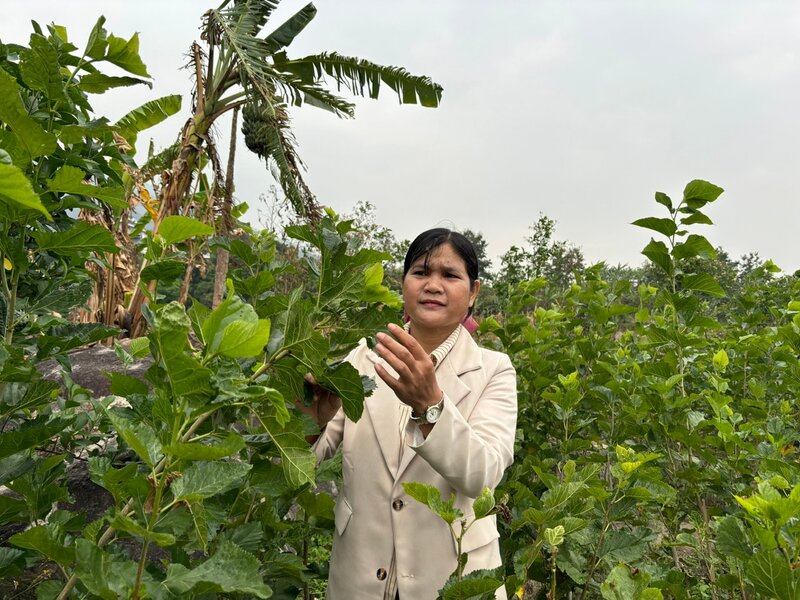Transferring economic models to the people
On September 28, Mr. Tran Phu Vinh - Secretary of the Party Committee of Dam Rong 4 commune (Lam Dong) - said that after the merger, the commune government apparatus operated smoothly, and the team of cadres wholeheartedly supported people in administrative procedures.
Along with that, many effective economic models have been transferred and spread to the people. A typical example is the mulberry growing model, which is gradually changing farming practices, bringing prosperity to the K'Ho ethnic people in Cheng village.
Mr. Vinh emphasized: "This success is thanks to the contributions and hard work of Ms. Ko Lieng K'hon - Vice President of the Commune Farmers' Association, thanks to the pioneering change in effective farming methods".
Ms. K'ON shared that in the past, coffee, cashew and rice were the main crops, but traditional farming practices caused low economic efficiency and difficult people's lives.
After training courses on mulberry growing and silkworm raising, she boldly converted 2,000 m2 of rice-growing land to high-quality mulberry. Thanks to the knowledge learned through consulting books, newspapers, and the Internet, mulberry trees have developed well.
The first straw of mulberry trees yielded quite a good yield, creating motivation for her to invest in iron planks and avoid timber for raising silkworms at home, becoming the pioneer K'Ho woman to bring silkworms to sell Cheng.
Currently, she raises two flocks each month, each row harvests 40-50 kg of cocoons, with a stable price of about 200,000 VND/kg. "Thanks to this model, my family has a stable income and a gradual economic development," Ms. K'hon shared.

Joining hands to help people develop the economy
The pioneering change in farming style of Ms. Ko Lieng K'On has become a model for Cheng traders.
She is also considered an "enemy" of the village market when she directly guides and transfers mulberry growing and silkworm raising techniques through "handsharing" sessions, helping many K'Ho gradually get used to this profession.
Ms. K'ON's joy was even greater when many families in Cheng village boldly switched from growing coffee, rice, water to mulberry raising silkworms. Ms. Ko Sa Bich (in Cheng village) shared that following Ms. KOns example, her family converted 2,000 m2 of rice fields to grow mulberry.
Thanks to suitable soil and her desire to learn techniques, mulberry gardens always produce high output, so Ms. K'Bich invests in raising silkworms at home.
At first, still confused, not knowing how to choose mulberry leaves to suit the age of silkworms, households quickly mastered the technique thanks to the dedicated guidance of Ms. K'On every day.
Up to now, Ms. K'Bich's family and many other households have been simple, raising silkworms each month brings in an income of 15-20 million VND.
Every day, Ms. KOn guides mulberry tree care and disease prevention for silkworms in ethnic languages, so everyone can easily understand and follow. Thanks to you taking the lead, doing it first and giving instructions wholeheartedly, only Cheng traders know how to grow mulberry to raise silkworms effectively, said Ms. K'Bich.











